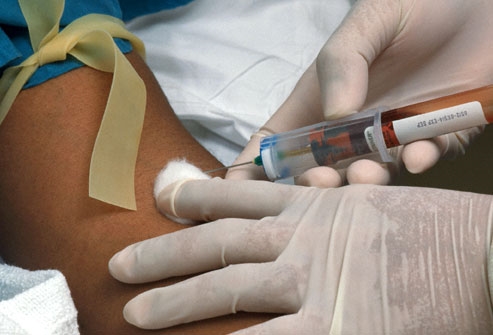The blood test They constitute an important part of prenatal controls. It is a simple procedure that consists of extracting a blood sample from the pregnant woman and provides valuable information about her state of health.
An analysis is usually performed per trimester and each of them is key at that time of pregnancy to prevent possible complications or make decisions about treatments to follow, so it is important not to skip any. We tell you thoroughly why blood tests are performed in pregnancy.
Blood tests in the first trimester
In the first pregnancy control, the doctor will request a normal blood test that includes information about the presence or absence of antibodies or possible infections that the mother could pass to the fetus through the placenta.
The first analytical It serves to know:
Blood group and Rh factor: It is necessary to know if the mother is Rh negative and there could be Rh incompatibility with the fetus in order to prevent complications or determine the treatment to follow.
Blood count and platelets: measures the number of red and white blood cells and platelets and is used to detect anemia or infectious processes.
Blood glucose: Measures blood glucose (sugar) concentration and is used to determine the possible occurrence of gestational diabetes, a disease that disappears after childbirth, but uncontrolled can cause serious complications in pregnancy.
Hepatitis B and C: determines if the pregnant woman carries the hepatitis B or C virus. All pregnant women should be tested, preferably in the first trimester to take the necessary measures if the result is positive.
Syphilis antibodies (luteic serology): It is a test called RPR or VDRL that rules out the presence of syphilis antibodies, an infection that can cause serious consequences in the fetus and should prevent its transmission.
Toxoplasmosis (IgM) antibodies: Most adults have already suffered it, almost all without symptoms, but during pregnancy it can seriously affect the fetus, and even cause an abortion. If the pregnant woman has passed the disease she has defenses against her, but if she has not passed it, the doctor will recommend a series of measures to avoid the risk of infection.
Rubella Antibodies: Most women have been vaccinated, but if the disease is spread during pregnancy it can cause serious harm to the fetus. If the woman is not vaccinated (in pregnancy she cannot receive it) it is recommended to avoid any risk situation.
HIV antibodies (AIDS): If the virus is diagnosed in the mother, it can act early to reduce the risk of transmission to the fetus.
Indirect Coombs Test: it is performed on all pregnant women to detect the presence of anti-RH antibodies.
Triple screening or biochemical screening: In triple screening three enzymes of the fetus present in the mother's blood (BHGC, estriol and alpha-fetoprotein) are measured to determine the risk of chromosomal abnormalities in the fetus such as Down Syndrome, Edwards Syndrome and neural tube defects. It is assessed with the results of the ultrasound performed in the 12th week of pregnancy.
Blood tests in the second trimester
Blood count: again the number of red blood cells and the hemoglobin and hematocrit values are controlled to control the mother's anemia status. A physiological anemia usually occurs in pregnancy, but if it is accentuated it could affect the well-being of the baby because the supply of oxygen through the blood would decrease.
O'Sullivan test (sugar curve): is performed to detect gestational diabetes through the administration of a 50 g glucose solution. It's not necessary to skip breakfast.
Toxoplasmosis antibodies: If the first test determines that the woman does not have antibodies against the disease, it is done again to discard that she has contracted it.
Indirect Coombs Test: Detects the presence of antibodies related to hemolytic disease.
Blood tests in the third trimester
Blood count: it is done again to assess the presence and degree of anemia
Coagulation tests: It is done for the delivery to assess the risk of bleeding at the time of delivery and the impossibility of applying epidural anesthesia.












